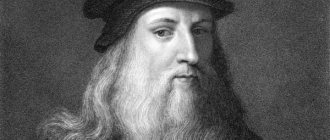When applying the concept of “talented” to a particular person, people often mean that she has certain abilities that set her apart from others. However, the nature of “talent” is much more complex and multifaceted. In this article I will describe in detail the definition of the word “talent”, tell you what it is, whether every person really has it and what meaning it has.
In psychology
I, as a psychologist, put into this term a successful combination of a number of data, predispositions and conditions for the realization of an individual’s creative or other aspirations. Thus, to reveal the inclinations, a confluence of certain circumstances related to the environment in which the object is located is necessary: social, cultural and historical. We are talking about extraordinary potential, which manifests itself in the process of gaining experience and allows you to achieve success in a particular business. In other words, about what you do better than most ordinary people.
What is the essence
Talent is not only a special talent, but also an individual’s unconscious craving for a specific type of activity. At the same time, he strives for what attracts a person no matter what. Often these abilities are identified in childhood. Outstanding scientists show an unhealthy interest in studying the world around them (bugs, plants, technical instruments); future high-class mathematicians learn to count early and quickly. The age of disclosure is different for everyone. But from an early age, a talented child stands out among his peers in some way.
First edition
Gosha K. - helping visionaries with activitiesDec 12, 2021 · 4 min read
! I recommend reading the second edition of this article.
Recently, a friend told me his observations of himself over the course of one day. He monitored whether he was happy and noticed that he enjoyed life in only 2 short moments throughout the day. This is a clear example of life and activity that is in no way based on a person’s personal talents.
1. Have you ever experienced a situation where you skillfully did some work, were engaged in some activity, investing personal energy in it, but this did not give you absolutely no internal drive ? Did you get good results and your product was called genius? If you remember such a case, then let's call it: THE CASE OF MANIFESTATION OF ABILITIES.
2. Has it ever happened to you that something in your activity and life sparked you and your interest for a long time? Did it lift you into a state of endless inspiration? Are you driven? If you remember this, then let's call it: MANIFESTATION OF TALENTS.
What is the difference? Talents are NOT the same as Abilities. And abilities are NOT the same as Skills. There is a gradation:
Talent is a natural ability that a person is BORN with.
Why is this the case?
Because talents are directly related to the personal and real goals of an individual. We can say that talents are personal tools for achieving your goal.
And goals, in turn, are a strong catalyst that activates a person’s super abilities and talents.
Constant inspiration , or any state even better than inspiration, is the main indicator that a person is living his talents and not passing them by in life.
A well-rounded individual can do many things well and competently.
There are people who are equally good with both texts and graphic design, and can write great music, as well as manage the development of projects well.
Extraordinary abilities can be trained. Abilities are the product of training and a lot of practice. Talents too, but there is one difference:
By training something without inspiration, simply at an analytical level of awareness, you will only gain ability, and it will not rise to talent, no matter how much time is devoted to gaining mastery.
You can train something code-named “A” for 1,000,000 years, and train something called “B” for the same amount of time. Will these things remain only genius abilities, or will they become personal talents - depends solely on whether there is inspiration and a state of “flow”?
Can you type on a keyboard? Great, you have the skill! The same can be said about the ability to walk, think, turn a computer on and off, and use the Internet.
Is your ability to do this extraordinary, in extraordinary ways, and indicative of super-competent results super-quickly? If yes, then this is an Ability!
Is this or that skill or ability an activator of your personal inspiration or drive, the state of “flow”? If yes, then there is some talent behind it!
A person has Talents, Abilities, and Skills.
1st option: a person often bases his activities and life on his Skills or Abilities... 2nd option: ... but you can lay your Talents as the basis of your activity.
Theory of heredity
Giftedness is often associated with genetic predispositions. However, there is no exact answer to the question of a hereditary predisposition to talent. Genes that contribute to the physical strengthening of the body form a predisposition to exercise. The basis for the development of mental abilities can also be inherited. But still, one genome is not enough to reveal individual characteristics. What is important is the practical realization of potential under living conditions conducive to this.
Why do talented people achieve more?
Talent allows a person to realize his qualities from birth, when a person’s predisposition is not yet entirely visible. However, the person himself, one way or another, gravitates towards precisely this type of activity; he develops most fully and quickly in the area that corresponds to his talent. Quite often, a talented person concentrates very strongly on his work, completely dedicating himself to it, which manifests itself not only in the moments of his work, but also in everyday life. This way of life subordinates a person to his work, which makes him much more effective and immersed in his work. A penchant for a certain type of activity allows a person to literally live his business, since it is interesting to him.
Interest arises precisely from the correspondence between human nature and a certain activity, just as the taste for certain food depends on the nature of a living being. This is a very clear demonstration that a person can eat quite a lot of his favorite food, while food that he doesn’t like is unlikely to stay in his diet for long. So it is with business, the manifested predisposition helps a person to focus on the matter, while its absence formalizes work, actually making it a means of earning money, and not the work of life, which accordingly removes sincere interest in the matter.
Talent attracts a person not only to the activity itself, but also to the study of additional materials that are related to the area of his talent. Thus, a person who has enriched himself with knowledge reveals to himself the experience of previous generations, as well as vivid examples that can inspire him and give him useful knowledge. At the same time, an ordinary person is unlikely to be interested in this - he does not live by this business, but only makes money from it. A large amount of knowledge and life in accordance with their business allows a talented person not only to be imbued with the spirit of his business, but also to perform tasks much more effectively.
Talent is also a unique, individual way of thinking that corresponds to the activity in which a person is talented. If a person is talented in some area, then his thinking will work especially effectively, allowing him to open new paths or more effectively follow old ones. In other words, this is a clearer vision of the matter, the skill, which allows you to penetrate deeper into its essence. This kind of vision is incredibly difficult to train, but it is available to those with talent.
Inclinations, talent and genius - differences
Speaking about natural rudiments, we mean a person’s innate predisposition to a certain activity. They may appear and fade over time, depending on whether the individual has put in enough effort to develop them. For example, if from birth a child has a wide vocal range and keen hearing, it will be easier for him to become a musician by learning this skill. However, inclinations alone are not enough to talk about an individual’s giftedness. Natural qualities can only bear fruit if you work hard at them.
Another concept - abilities - is defined as the individual characteristics of a person, which are prerequisites for him to carry out outstanding activities. At the same time, the usual functionality inherent in every human being cannot be classified in this category (speech, the ability to walk, work), since it is not unique and is of a general nature. It is important that a person capable of anything has the ability to quickly acquire the knowledge and skills she needs for development.
Giftedness is a set of innate inclinations that serve as one of the conditions for the emergence of abilities. It presupposes that an individual has a strong desire for a particular occupation and has great potential for outstanding achievement in the chosen field. For example, if a child has been interested in fine arts since childhood, the prerequisites for the development of talent will be indicated by his developed imagination, the ability to see color and light subtleties, and also to find beauty in everything that surrounds him. With all this, the young talent must also have a need for self-expression.
Psychologist Daria Milai
Make an appointment
Talent, as mentioned above, presupposes that an individual has a certain platform for development under the appropriate favorable circumstances and persistent, long-term work. Genius represents the highest level of talent, which is characterized by an extreme degree of productivity, as well as the ability to create something fundamentally new, previously non-existent and unique. It is expressed not only as a result of the activity performed, but also by the power of its impact on the surrounding world and society.
Interpersonal type
A person with an interpersonal type of talent is better than anyone else at communicating with other people, understanding them and finding a common language with them. Such a person is distinguished by unique charisma, as well as the ability to feel other people’s emotions and sincerely share them and empathize. People with such talent become excellent psychologists, business coaches, marketers, and public figures. People with the interpersonal type of talent include such famous personalities as Alfred Adler, Carl Jung, Louise Hay, Tony Robbins, etc.
Types of talent and examples from life: what kind of talent a person can have
There are 7 types of talent. Later, this list was updated and supplemented with several more items that correspond to modern realities:
- Verbal-linguistic.
- Logical-mathematical.
- Bodily-kinetic.
- Interactions with nature.
- Auditory.
- Emotional.
- Spatial.
- Interpersonal.
People can be classified into one category or another if they have the aspirations and capabilities to master a certain type of activity, as well as their ability to learn quickly and master the necessary skills.
Examples of brilliant people
- Vincent van Gogh is a Dutch artist who painted more than 2,100 works, 860 of which were painted in oils. Van Gogh created a new pictorial language and discovered art as modernism. He suffered from bipolar disorder and committed suicide.
- Archimedes is an ancient Greek mathematician, physicist and engineer who revealed to the world the method of calculating areas and volumes, which formed the basis of integral calculus, created the definition of the volume of a surface and a sphere, gave his definition of the number Pi “pi”, created a screw that facilitates the lifting of loads, built a planetarium, where the movements of 5 planets are visible. Archimedes' discoveries and innovations are extensive, in astronomy and physics, he proved many theorems, and according to the ancient Greek philosopher and writer “Plutarch” - Archimedes suffered from an obsession with mathematics, lived without paying attention to his appearance and did not really take care of himself.
- Newton Isaac - English mathematician, physicist, inventor. Created the law of universal gravitation and the three laws of mechanics. He developed differential and integral calculus and many other discoveries and theories. He was good at drawing. Newton was always sad and never laughed, no one noticed that he was irritated or nervous. He was indifferent to entertainment and was in a concentrated state all the time.
- Galileo Galilei - Italian physicist, writer, mathematician, astronomer, mechanic, inventor. He made a significant contribution to science; he was the first to use a telescope to observe and study celestial bodies, which led to discoveries in astronomy. Galileo is a pioneer in experimental physics. In his early years, as a student, he argued with teachers, believing that his opinion should be taken into account.
What talents does a person have: list
- Verbal-linguistic. Characterized by excellent command of written and oral communication. Such people, as a rule, achieve success in philology, journalism, literary creativity and jurisprudence. They are good at writing poetry and prose, speaking in public, and various techniques of verbal and nonverbal communication. Such talented individuals include V. Ovchinnikova, a Soviet essayist and orientalist, G. Aldred, a famous American lawyer (one of the top 5 most successful lawyers in the world).
- Digital. Assumes outstanding mathematical and analytical abilities. A person with this type of giftedness easily carries out calculations, builds logical connections, and perceives the world more through the prism of numbers than through its artistic component. A great mathematician is L. Euler, who combined algebra, analysis and trigonometry and compiled general theories and laws.
- Spatial. It represents outstanding architectural and artistic data. This category includes artists, designers, sculptors, and architects. For example, the Spaniard A. Gaudi y Cornet, who knows how to work with the most daring forms in architecture.
- Physical (bodily-kinetic). Determined by aspirations for sporting achievements, as well as a predisposition to the dance field. As a rule, owners of this type of talent have natural endurance, flexibility, strength and energy, which allows them to more easily endure stress and strive for the highest results. Examples: basketball player L. James, golfer T. Woods, track and field athlete W. Bolt.
- Intrapersonal (emotional) talent manifests itself in a penchant for philosophy, self-development, and immersion in the inner world. These are deeply reflective people, mostly self-absorbed. They are prone to meditation, mastering spiritual practices, achievements regarding personal development and growth.
- Interpersonal. Reveals itself in interaction with others. These are public figures who know how to establish contact with the audience or its individual representatives. Good psychologists who have special charisma and empathy, feel the interlocutor and find the right approach to him. This category also includes politicians, actors, and entrepreneurs.
- Environmental talent. It includes those who develop themselves in agronomy, training, veterinary medicine and other areas of activity related to nature, caring for plants or animals. Like the British woman K. Drew-Baker, thanks to whom (or rather, her research on marine flora and fauna) the production of nori seaweed was established.
- Auditory (musical). Inherent in those who have a special relationship with the world of sounds. Such individuals have almost perfect pitch and feel music. Outstanding composers, singers, conductors, and musicians have such data.
Face-to-face consultation
What are the features and advantages of face-to-face consultation?
Find out more
Skype consultation
What are the features and benefits of Skype consultations?
Find out more
Verbal-linguistic type
Such people are distinguished by excellent command of speech, both written and oral. In addition, they often have a talent for languages. The manner in which such people present their own ideas and thoughts is extremely original, high-quality and beautiful. They make first-class writers, journalists, lawyers, speakers, and translators. Among the speakers with this talent are Abraham Lincoln, Winston Churchill, Vladimir Lenin, Steve Jobs, etc. Among the artists with this talent are such great writers as Leo Tolstoy, Fyodor Dostoevsky, William Shakespeare, Homer, etc.
I have no talents: what to do
Giftedness is not characteristic of all people, which makes this phenomenon unique. But everyone has the makings, which are the starting platform for the development of talent. First of all, you need to analyze whether you have a desire for something. Perhaps a particular occupation comes easily to you. Find an area that you are passionate about.
How to discover your abilities
Since this individual feature depends on the innate properties of the personality, its disclosure allows you to find your calling. The sooner you decide on this, the more time you will have for self-realization in your chosen area.
There are several basic techniques to identify hidden potential:
- introspection, childhood research;
- passing tests;
- frank conversation with a loved one;
- constant development of the inner world and worldview;
- increasing the level of expertise in a number of issues of interest, increasing knowledge;
- conducting experiments with different areas, practicing new types of activities.
Remember your childhood interests. What did you want to become in the future? What could you devote all your free time to? This period is the most sincere in life. Unblinded by public opinion and the influence of responsibility, the child intuitively reaches out to what works and brings him pleasure. Remembering the things you loved and valued at an early age can help you discover those same tendencies in yourself as an adult.
How to develop talent
After identifying your abilities, it is important to start “pumping” them. To do this, be sure to practice regularly, increasing your level of professionalism. Discovering your talent is the result of hard work, training, and diligence. By reinforcing willpower and determination, you transform from an ordinary capable person into a talented one.
Ask a question
You can also follow this algorithm:
- Realize that you have the prerequisites for giftedness.
- Systematically devote time to your inclinations.
- Get out of your comfort zone, do something new, let the world know about your successes.
- Search and accumulate information that relates to your hobby.
- Get a mentor.
- Compete with your competitors periodically.
Remember how important it is to believe in yourself. You can gain a charge of positive energy and learn to move towards your dreams despite obstacles by signing up for my consultation. Don't be afraid if at some point they start criticizing you. Learn to separate subjective opinions from constructive ones and benefit from the feedback you receive. Get started now. Don’t even think about putting off self-development until tomorrow, Monday, the first of the month or the New Year. Postponing the development of your abilities until later means burying your talent deeper and deeper into the ground.
Hidden Features
Sometimes it is not immediately possible to understand what a person is inclined to do. Without using paints, he will never know that he has the makings of an artist. The only way to discover the potential hidden within is to constantly try new things. They will say that this is really “your” activity:
- ease of mastering skills;
- fast and decent results;
- feeling of fullness, no need for additional motivation.
Mastering useful skills only contributes to the development of talent when a person sees the results of his work being of high quality. And for this you need to gain as much experience as possible, train so as not to lose shape.
Definition
Scientists have been studying human abilities and their influence on the formation of personality since ancient times.
As a result of research by modern psychologists, taking into account the experience of predecessors, a certain formulation of the psychological properties of a person has emerged: Talent in psychology represents a high degree of favorable combination and interaction of an individual’s abilities in a certain field of activity.
As a result of independent, successful and original performance of a complex work task in a novel way, a person notices characteristic signs of his talent:
- feeling of inner trepidation and lifting of spirits during work;
- an increase in the ability to quickly learn against the background of an attraction to the subject;
- instant demonstration of good results, despite lack of experience.
Talent is manifested by a high level of creativity and is the result of talent, which is ensured by inclinations. However, talent, together with inclinations, guarantees the desired results in various fields, and talent is the peak of creativity in a certain type of activity.
The term “talent” first appeared in a biblical parable and denoted a weight measure of payment. However, methods of dealing with the monetary equivalent (develop, increase, bury) today are associated specifically with talent as a psychological category.
History of the concept
Since ancient times, philosophers and thinkers, and then psychologists, have been interested in the question of the nature of the outstanding mental abilities of individuals. However, the complex structure of the human psyche is difficult to understand, so the views of ancient and modern philosophers on the problem are not entirely identical.
Thinkers of the pre-scholastic period identified talent with a divine gift, because philosophy was subordinate to religion. They did not share the concepts of giftedness, genius and talent, considering them a single category.
Plato, Seneca, Posidonius adhered to the idea of the existence of a mystical force (fate, fate) that predetermines the development of the individual. At the same time, they recognized the presence of mental, moral and virtuous qualities, denying the role of training in transforming craft into mastery.
During the Renaissance, the Spanish doctor Juan Huarte tried to comprehend the philosophical and psychological depth of talent, which was designated as giftedness. He raised the question of the influence of natural qualities on a person’s ability or inability to perform a certain type of art and science. The doctor tried to diagnose talent based on external signs (the nature of the hair, the shape of the face).
In Enlightenment psychology, talent is the purity of the human mind from birth. The theory of “tabula rasa” began to supplant the idea of the divine sources of genius.
According to the English philosopher John Locke, there are no divine or innate prerequisites, and high horizons of knowledge are the result of life experience. G. Leibniz and Rene Descartes did not agree with this point of view, positioning the concept of “innate ideas”.
The beginning of the 19th century was marked by a surge in experimental research, and psychology became an independent science. The introduction of empirical methods in the study of talent by the English scientist F. Galton led him to the conclusion about the hereditary nature of genius.
With the advent of the associative direction in psychology, talent began to be associated with the quality of memory and level of intelligence, thanks to the French psychologist A. Binet. The role of talent was less significant compared to the value of genius.
In the 20th century, practitioners continued to study talent from the perspective of giftedness problems (“three-ring” model by D. Renzulli). The famous Russian scientist L. Vygotsky came up with the idea of the need to support a talented person so that he becomes a genius.
Without the development of creative potential from childhood, the likelihood of personality degradation increases. At the end of the 20th century, Howard Gardner wrote a book about the structure of the mind, where the author classified talent into seven types.
According to the author of the “chronopsychology” project A. V. Petrovsky, the degree of talent is based on natural prerequisites, and talent itself is not a prerequisite for realizing the individual’s potential. This is only an opportunity to gain absolute mastery on the way to the highest stage of development of abilities - genius.
How to praise talent
Praise and support are a very important tool in developing abilities. If you discover a certain degree of giftedness or uniqueness in a loved one, be sure to show him that you are ready to support him. Let him see that you are also happy when he devotes himself to his favorite activity. Don't be afraid to overpraise him. On the contrary, the stronger your inspiration, admiration and desire to help, the faster he will believe in the correctness of his path. This is especially true for children. Do not under any circumstances ignore their impulses of creativity, but in every possible way contribute to their consolidation.
Do not forget that creative people are most often very vulnerable and impressionable. They worry if others are not interested in their successes. Simple praise can be a very valuable mechanism to push them to achieve. Talent manifests itself only with a favorable combination of the individual’s personal qualities, his inclinations and sociocultural conditions. The best time for the development and discovery of giftedness is considered to be childhood. During this period, the individual is drawn to what truly awakens an emotional response within her. It is important that the environment at home and at school is conducive to the development of the child’s abilities. But even in adulthood, a person can discover a new talent in himself. The only question is motivation, desire to achieve more and hard work.
Personal (emotional) type
Those with this type of talent are adept at developing themselves as individuals. They tend to carefully analyze their own actions and behavior, as well as everything that happens in their lives. In addition to knowing themselves well, such people love to practice various meditative and spiritual practices, and in this they really have no equal. A person with this talent becomes an excellent personal growth coach and philosopher. Among people with an emotional type of talent are Omar Khayyam, Osho, Mahatma Gandhi, etc.











